Pissing Contests
A guy I used to work with told a story about Junior Finchley, one of his boyhood friends. His crowd would hold what they somewhat indelicately called pissing contests where the kids would line up along the curb and see how far each could urinate out into the street. Junior Kelly was their all time champion as he could urinate completely across Kipling Avenue, then a two lane road.
Junior had a slight malformation that constricted his urethral duct and acted like putting your thumb over the end of a running garden hose to water plants further away. For Junior his malady allowed him to propel his urine to almost incredible distances. Well, any doctor will tell you that such a condition can be dangerous, and most would advise a surgical correction. Thus Mr. and Mrs. Finchley had Junior fixed, and he lost his notoriety. After the surgery, Junior couldn't piss beyond the toes of his shoes.
Why do I tell you this? Well, I guess I'm trying to show that pissing contests expend time and energy, but prove nothing worth knowing. Cuba and the US have been in such a contest for more than 50 years, gaining neither side anything worth having and losing both sides much that is valuable. I'm not here to judge which side has won, is winning, or will win this useless waste of time and treasure.
To discuss this conflict, we might begin by examining the words each side uses to describe it. In Cuba, it isn't an "embargo," it's a "bloqueo" or a blockade. Webster says a blockade is a shutting of ports of a belligerent by its enemy--clearly an act of war. In the US, we call it an embargo which is defined as shutting your own ports to commerce with an opponent, certainly an act a little less belligerent than a blockade.
As my work in Cuba involves the plight of domestic companion animals, let's consider how Cuba's economic problems affect those animals. First most dogs and cats don't have collars or ID tags, and few are ever walked on leashes. Many city dwellers have no yards so dogs are let outside to relieve themselves. On the street, how do you tell which animals have homes and which are stray? My way to tell is the only way I've come up with, and it isn't very accurate--I look to see if his ribs are showing, telling me how well fed an animal is. When public dog catchers come through your neighborhood, they pretty well take the dogs they can catch because they have the same problems I have in telling family dogs from strays. Thus large numbers of family dogs disappear each year into a killing machine designed to avoid shocking tourists with sick, dying, or dead animals on the streets.
I say this tragedy is caused by the embargo or blockade or whatever you want to call it. Surely Cubans love their dogs, but their standard of living, beaten down by privations imposed on Cuba, leaves no room for the cost of collars and tags. And consider this: Nowhere in Cuba can you get your dog microchipped. This, the best way of identifying domestic animals, is completely unavailable in an economy that has a hard enough time feeding its humans, much less its pets.
And speaking of feeding your animals, how does Fido get enough to eat in Cuba? For the most part he gets scraps and leftovers from his master's table. The average Cuban, paid in old Cuban Pesos (or Moneda Nacional) cannot buy the small amount of pet food Cuba imports which is sold only in CUC's (pronounced "kooks"), a money system pretty well restricted to tourist use. Thus you may find a few places which sell pet food, but it's priced in money the average Cuban citizens don't have and can't earn.
And what about vet care? Cuba, with its good educational system, educates many veterinarians each year, but remember, this is a Communist economy, and these vets are schooled to become public employees like meat inspectors, agricultural managers, and airport officials. If a vet offers his or her services to treat domestic pets, it's usually as a part-time sideline run out of his garage for his neighbors. His day job has nothing to do with companion animals.
The point of all this is that Cuba could be a better home for family animals if it weren't so stressed by the embargo. How could there be a more innocent group of beings hurt by a failed political policy? And if we see signs of suffering among the animals of Cuba, think of how the man in the street must be suffering too.
These family critters are in our world to make life better for people. Both sides in this pissing contest between neighboring nations should admit it is a failure hurting the wrong victims and go about creating a better world for people and their animals.
Les Inglis
Sunday, October 30, 2011
Subscribe to:
Post Comments (Atom)










































































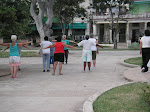
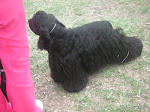
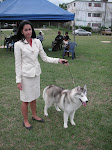


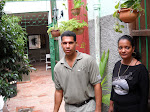





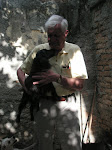



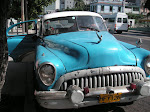

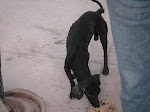


No comments:
Post a Comment